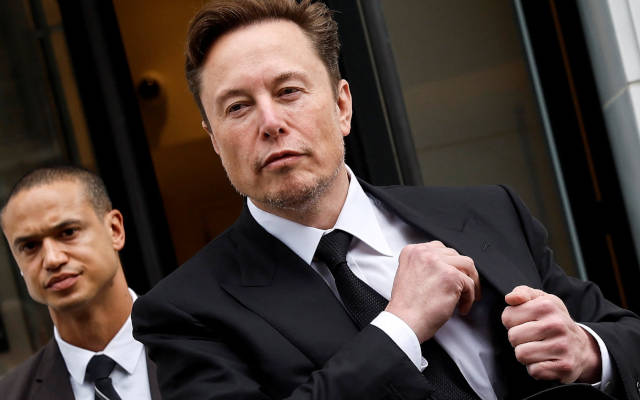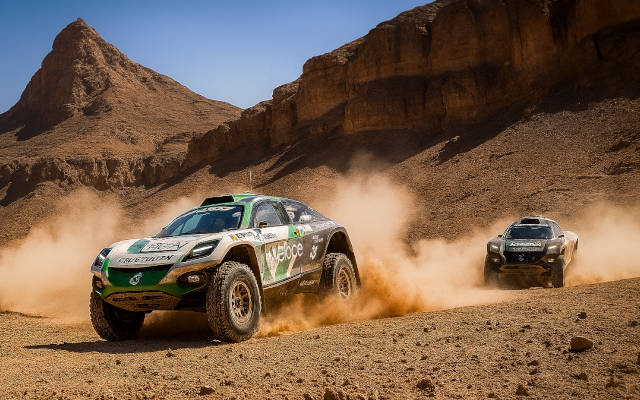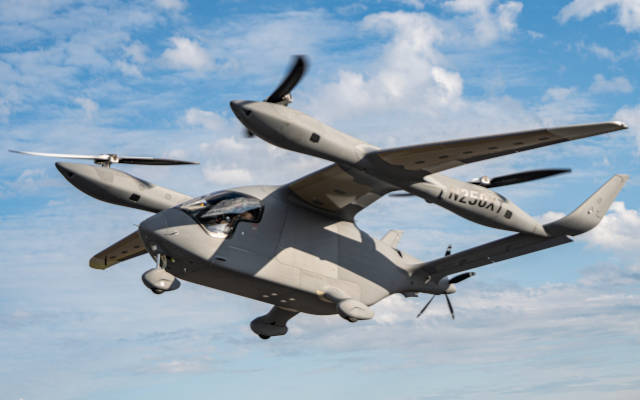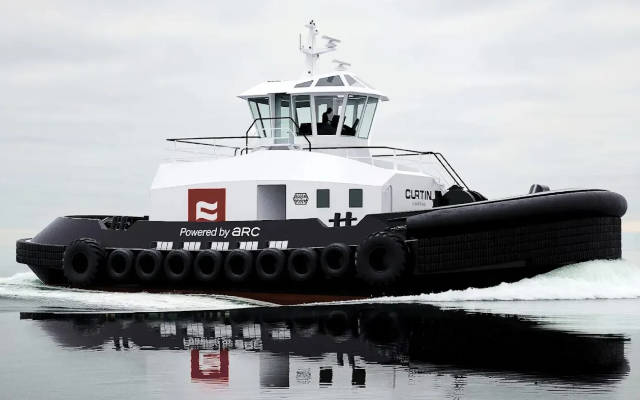 EDITOR'S PICK
EDITOR'S PICK
Where’d the Billion Come From? Musk's Tesla Buy Raises Questions
17 Sep 2025 | Synopsis
 Elon Musk's $1B Tesla stock purchase, made via his personal trust, sparked a surge in share price and raised questions about how the buy was funded. Likely financed through margin loans, derivatives, or asset reallocation, the move increased Musk's net worth by up to $8.6B. The timing aligns with Tesla's proposed $1T compensation plan, suggesting a strategic gesture to boost investor confidence and governance optics.
Elon Musk's $1B Tesla stock purchase, made via his personal trust, sparked a surge in share price and raised questions about how the buy was funded. Likely financed through margin loans, derivatives, or asset reallocation, the move increased Musk's net worth by up to $8.6B. The timing aligns with Tesla's proposed $1T compensation plan, suggesting a strategic gesture to boost investor confidence and governance optics. Extreme H: Hydrogen Racing's Bold New Frontier
17 Sep 2025 | Synopsis
 Extreme H is the world's first hydrogen-powered off-road racing series, debuting in Qiddiya City, Saudi Arabia. Evolving from Extreme E, it features gender-equal teams, zero-emission Pioneer 25 SUVs, and green hydrogen supplied via electrolysis. The rugged desert course tests fuel cell performance on gradients up to 130%. Backed by Saudi Vision 2030, the series aims to prove hydrogen's viability and promote sustainable motorsport innovation.
Extreme H is the world's first hydrogen-powered off-road racing series, debuting in Qiddiya City, Saudi Arabia. Evolving from Extreme E, it features gender-equal teams, zero-emission Pioneer 25 SUVs, and green hydrogen supplied via electrolysis. The rugged desert course tests fuel cell performance on gradients up to 130%. Backed by Saudi Vision 2030, the series aims to prove hydrogen's viability and promote sustainable motorsport innovation.Seattle's Sound Transit: Ridership, Energy, and Fiscal Challenges
16 Sep 2025 | Synopsis
 Seattle's Sound Transit has expanded its Link light rail system to 45 miles, offering fast, affordable, and eco-friendly travel powered by hydro and wind energy. Ridership hit 3.08 million in October 2024, with fares as low as $1 for seniors and free for youth. A Lynnwood–SEA Airport trip takes 80–85 minutes by rail, beating car travel in cost and emissions. Despite success, Sound Transit faces need for a substantial financial overhaul.
Seattle's Sound Transit has expanded its Link light rail system to 45 miles, offering fast, affordable, and eco-friendly travel powered by hydro and wind energy. Ridership hit 3.08 million in October 2024, with fares as low as $1 for seniors and free for youth. A Lynnwood–SEA Airport trip takes 80–85 minutes by rail, beating car travel in cost and emissions. Despite success, Sound Transit faces need for a substantial financial overhaul.How FAA's eVTOL Pilot Could Transform U.S. Air Travel
14 Sep 2025 | Synopsis
 The FAA launched the eVTOL Integration Pilot Program (eIPP), a 3-year initiative inviting governments and private partners to test electric air taxis and other advanced air mobility (AAM) aircraft. The goal is to gather data to shape future regulations and demonstrate real-world use cases like cargo and medical transport. Companies like Joby, Archer, Beta, and Wisk plan to participate, aiming to revolutionize U.S. air travel.
The FAA launched the eVTOL Integration Pilot Program (eIPP), a 3-year initiative inviting governments and private partners to test electric air taxis and other advanced air mobility (AAM) aircraft. The goal is to gather data to shape future regulations and demonstrate real-world use cases like cargo and medical transport. Companies like Joby, Archer, Beta, and Wisk plan to participate, aiming to revolutionize U.S. air travel.Arc Announces $160M Deal With Curtin Maritime For Eight Hybrid-Electric Tugboats
14 Sep 2025 | Synopsis
 Arc signed a $160M deal with Curtin Maritime to deliver eight hybrid-electric tugboats, marking the largest commercial deployment of electric workboats. Built with Snow & Co, the tugs feature Arc's 4,000+ HP electric powertrains and 6 MWh battery buffers. The first four are due by 2027. The project aims to modernize U.S. ports with efficient, low-maintenance, cost-effective vessels, challenging diesel norms and advancing marine electrification.
Arc signed a $160M deal with Curtin Maritime to deliver eight hybrid-electric tugboats, marking the largest commercial deployment of electric workboats. Built with Snow & Co, the tugs feature Arc's 4,000+ HP electric powertrains and 6 MWh battery buffers. The first four are due by 2027. The project aims to modernize U.S. ports with efficient, low-maintenance, cost-effective vessels, challenging diesel norms and advancing marine electrification.
 EVWorld Exclusive
EVWorld Exclusive
Automakers Take Flight: eVTOL Partnerships and Launch Plans
22 Oct 2025 |  Automakers are accelerating eVTOL development through strategic partnerships. Archer and Stellantis lead with FAA certification targeted for 2025. Joby and Toyota follow closely, planning launches in the U.S. and Dubai by 2026. Eve, backed by Embraer and Porsche, aims for dual certification in Brazil and the U.S. XPeng and Geely expand in China and the Middle East. Hyundai’s Supernal is paused, and BYD remains in stealth. These ventures blend aerospace innovation with automotive scale.
Automakers are accelerating eVTOL development through strategic partnerships. Archer and Stellantis lead with FAA certification targeted for 2025. Joby and Toyota follow closely, planning launches in the U.S. and Dubai by 2026. Eve, backed by Embraer and Porsche, aims for dual certification in Brazil and the U.S. XPeng and Geely expand in China and the Middle East. Hyundai’s Supernal is paused, and BYD remains in stealth. These ventures blend aerospace innovation with automotive scale.
BYD's CTB Tech Turns the Battery Into the Backbone
22 Oct 2025 |  BYD's Cell-to-Body (CTB) technology integrates the battery into the vehicle's structure, boosting stiffness, safety, and packaging efficiency. Unlike traditional EVs, the Blade Battery becomes part of the car's floor, enabling sleeker design and fewer components. Though serviceability and recycling pose challenges, CTB marks a bold shift in EV architecture - one that rivals are watching closely.
BYD's Cell-to-Body (CTB) technology integrates the battery into the vehicle's structure, boosting stiffness, safety, and packaging efficiency. Unlike traditional EVs, the Blade Battery becomes part of the car's floor, enabling sleeker design and fewer components. Though serviceability and recycling pose challenges, CTB marks a bold shift in EV architecture - one that rivals are watching closely.
My EV Is a Brick: When Software Locks Out the Driver
22 Oct 2025 |  A Tesla owner's bricked EV after a software rollback highlights growing concerns over digital ownership. Critics warn that EVs are becoming "subscription machines," where features can vanish remotely. Proposed reforms include right to repair, feature permanence contracts, and regulatory oversight. As automakers like GM and Rivian expand EV offerings, the industry must decide: are EVs durable goods - or smartphones on wheels?
A Tesla owner's bricked EV after a software rollback highlights growing concerns over digital ownership. Critics warn that EVs are becoming "subscription machines," where features can vanish remotely. Proposed reforms include right to repair, feature permanence contracts, and regulatory oversight. As automakers like GM and Rivian expand EV offerings, the industry must decide: are EVs durable goods - or smartphones on wheels?
BrightDrop Fades Out: What's Next for Retail EV Fleets?
21 Oct 2025 |  GM has ended production of its BrightDrop electric vans, leaving retailers like Target and Walmart seeking alternatives. Fewer than 2,000 vans are in service, far below expectations. Ford's E-Transit, Rivian's RCV, and Mercedes' U.S.-built eSprinter are the most viable replacements. BrightDrop's failure highlights the challenges of scaling commercial EVs amid shifting incentives and slow fleet adoption.
GM has ended production of its BrightDrop electric vans, leaving retailers like Target and Walmart seeking alternatives. Fewer than 2,000 vans are in service, far below expectations. Ford's E-Transit, Rivian's RCV, and Mercedes' U.S.-built eSprinter are the most viable replacements. BrightDrop's failure highlights the challenges of scaling commercial EVs amid shifting incentives and slow fleet adoption.
Model Y Competitor? NIO's Onvo L60 Is Affordable EV for the Masses
21 Oct 2025 |  The Onvo L60 is a mid-size electric SUV from NIO's ONVO brand, designed for families and priced to undercut the Tesla Model Y. It offers up to 462 hp, 525 km range, and supports battery swapping via NIO's Battery-as-a-Service (BaaS), lowering upfront cost to ~$21,200. Full ownership with battery is ~$29,300. Exports to Europe begin in 2025. With smart tech, spacious design, and flexible pricing, it signals China's EV push into the global mainstream.
The Onvo L60 is a mid-size electric SUV from NIO's ONVO brand, designed for families and priced to undercut the Tesla Model Y. It offers up to 462 hp, 525 km range, and supports battery swapping via NIO's Battery-as-a-Service (BaaS), lowering upfront cost to ~$21,200. Full ownership with battery is ~$29,300. Exports to Europe begin in 2025. With smart tech, spacious design, and flexible pricing, it signals China's EV push into the global mainstream.
 22 Oct 2025 15:51:59 UTC |
RECENT PODCASTS
Texas Tesla Charging Bill - Archer Buys Lillium Assets - DHL Fleet
SEARCH RSSTREAM
 62 New Postings In Past 24 Hours
62 New Postings In Past 24 Hours
Category:mobility
Region:Europe
Date:22 Oct 2025
Category:mobility
Region:NoAmerica
Date:22 Oct 2025
Category:mobility
Region:AsiaPacific
Date:22 Oct 2025
Category:finance
Region:IndoAsia
Date:22 Oct 2025
Category:finance
Region:AsiaPacific
Date:22 Oct 2025
Category:finance
Region:AustralPacific
Date:22 Oct 2025
Category:mobility
Region:Global
Date:22 Oct 2025
Category:finance
Region:NoAmerica
Date:22 Oct 2025
Category:finance
Region:NoAmerica
Date:22 Oct 2025
Category:mobility
Region:NoAmerica
Date:22 Oct 2025
Category:review
Region:NoAmerica
Date:22 Oct 2025
Category:energy
Region:NoAmerica
Date:22 Oct 2025
Category:finance
Region:NoAmerica
Date:22 Oct 2025
Category:autonomy
Region:AustralPacific
Date:22 Oct 2025
Category:finance
Region:NoAmerica
Date:22 Oct 2025
Category:finance
Region:NoAmerica
Date:22 Oct 2025
Category:review
Region:NoAmerica
Date:22 Oct 2025
Category:energy
Region:Europe
Date:22 Oct 2025
Category:mobility
Region:NoAmerica
Date:22 Oct 2025
Category:energy
Region:AsiaPacific
Date:22 Oct 2025